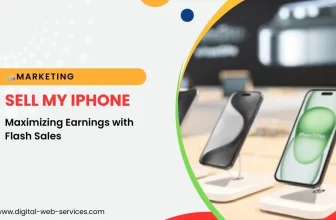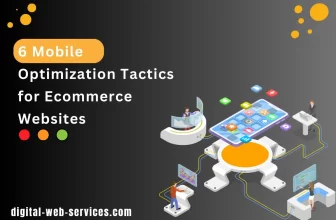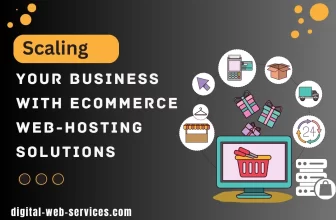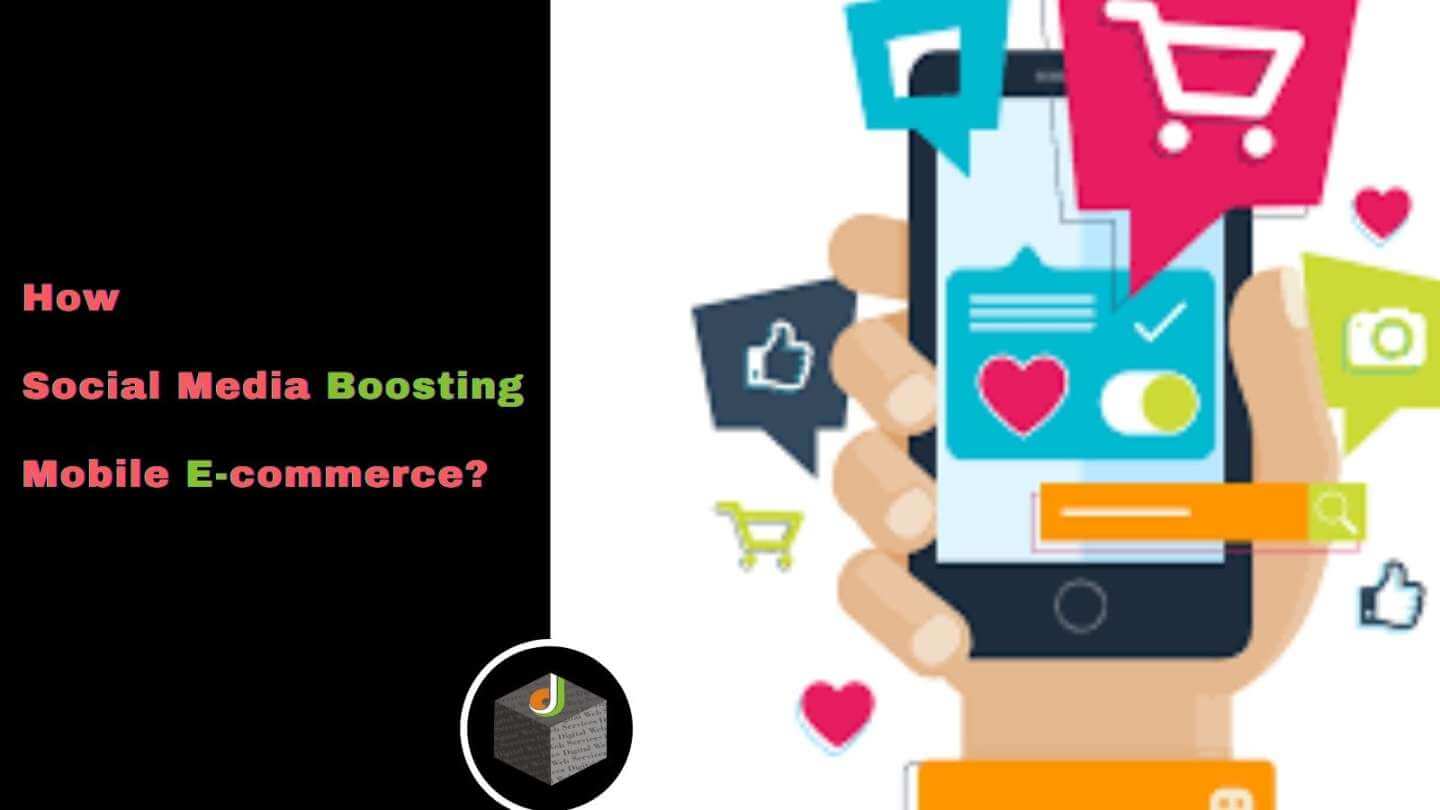
Are social media and m-commerce a match made in heaven? Let’s look at some statistics quickly:
- Shoppers on social media spent an average of $79 during the second quarter of 2019.
- One-quarter of the money spent online in 2017 was through mobile devices.
- 6% of the global population uses social media.
- 58% of people become more interested in a brand after seeing it in Instagram stories.
- Active social media users increased by 13.2%, which translates into 490 million users.
- 81% of all web traffic comes from mobile devices.
When you consider the sharp increase in both social media users and mobile device users, there is a correlation. In this article, we’ll clarify what m-commerce is and how social media might impact it.
What Is M-Commerce?
M-commerce refers to any purchases or financial transfers conducted on a mobile device. Mobile users might, for example:
- Pay for goods or services with their mobile
- Send money to someone
- Pay a monthly bill
- Pay for in-app purchases
Why Is M-Commerce in the Spotlight Now?
Mobile use has been increasing steadily over the last few decades. It’s now unusual to find someone who doesn’t have a mobile device of some sort. M-commerce is a natural evolution considering how integral smartphones have become to society.
If you examine the graph below, you’ll see that mobile commerce is on an upward trajectory. It long since surpassed desktop devices as the top originator of online sales.
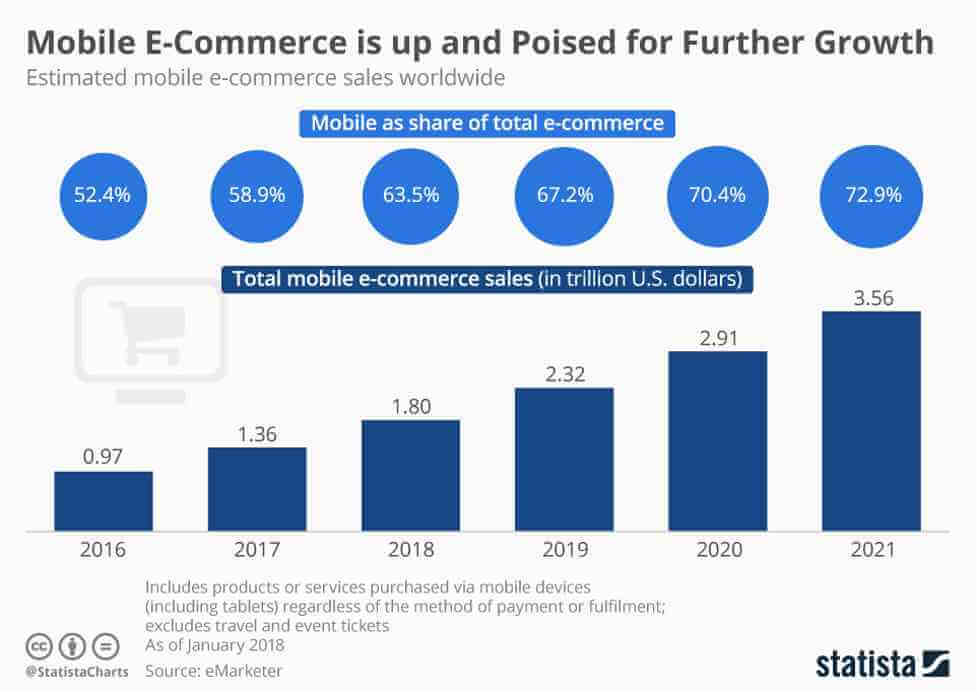
Image Source: Statista
In the chart below, you’ll see that $1 in $4 is spent on e-commerce via mobile in the US. The breakdown gives you an idea of what people buy to evaluate the impact of m-commerce better.
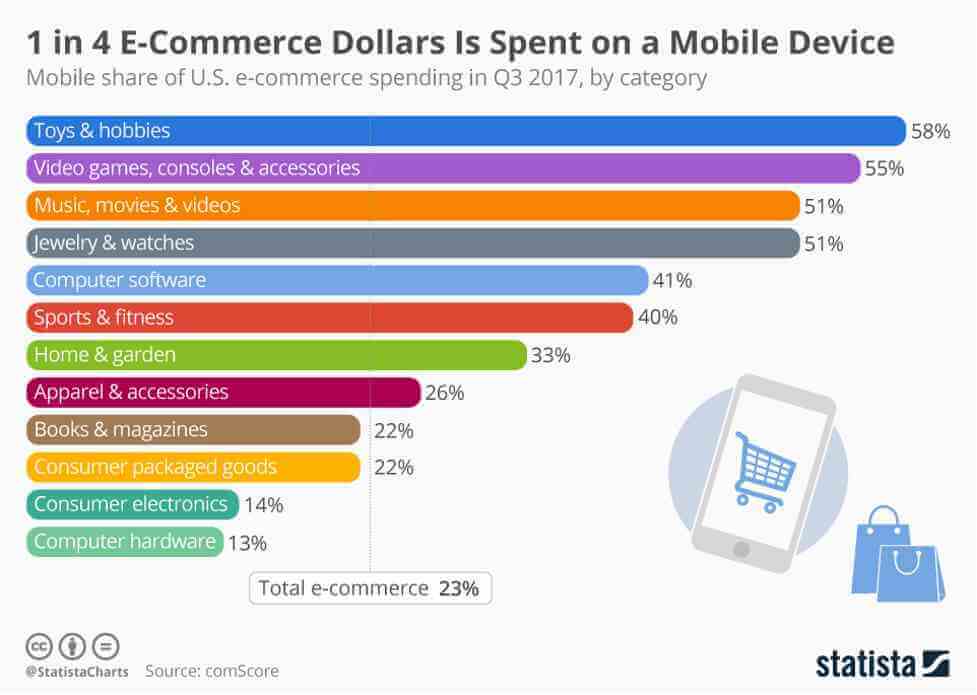
Image Source: Statista
Where Does Social Media Enter the Picture?
Social media provides a convenient platform for marketers and retailers. It allows companies to show off their products and gain a level of exposure not available before. Social media centers on sharing information.
It’s also primarily a mobile-centric world. It’s quick and easy to check your TikTok updates on your phone, making the platform an ideal match for m-commerce.
More Exposure
This may be in the form of a funny meme, a quick status update, a review of a company, or a stunning picture of a newly launched product. The value of social sharing is in its reach. A group of friends, for example, might follow each other on Instagram.
If they see a product they like, they can tag their friends, and the group sees it. By contrast, a traditional print media advert may only be seen by one member of the group.
Provides Social Proof
The fact that friends share images they find instantly lends some desirability to the item. You have social proof that someone you admire likes or has bought the same thing. It’s an encouragement for others to follow suit.
Social Media Is Becoming All Things to All People
If we analyze the growth of social media, it’s clear that we’re moving toward a one-stop channel. The platforms initially enabled quick and easy communication via text. They now incorporate shopping, search features, videos, live chats, marketing, community sites, e-wallets, and a lot more.
Moving forward, social media will continue to morph into a one-stop-shop where users start the search for the information that they require and buy products that match their needs.
The Growth of Social Commerce
Social commerce refers to the sale of items within the social media platform. Instead of clicking away to a separate business site to buy products, clients complete the whole transaction on Facebook or Instagram, and so on.
Why Does Social Commerce Boost Mobile Commerce?
Social commerce boosts mobile commerce because it makes purchasing simple. The sites incorporate convenient features like auto-filled fields and payment details. It takes clients fewer steps to checkout, making it easy to buy on their phones.
Also, social media allows businesses to utilize chatbot technology. The bots answer questions immediately, improving client satisfaction. The bots may even make recommendations that close the sale.
Recently, in particular, we’ve seen convenient examples of how this technology boosts m-commerce. Say, for example, the client wants to find out if the company has a pair of shoes in her size. In the past, she’d have to phone during office hours or wait for a response to her email. By the time that arrived, she may have found an alternative.
With modern chatbots, the firm can, instead, provide a WhatsApp number for queries. The client texts the number, and the bot asks a few short questions to establish what she wants. The bot confirms that the shoes are in stock or offers to order them.
As the bot links to the company’s database, it can extract the client information it requires. The only way that this process could be simpler is by incorporating voice chat. Keep your ears open; voice bots already exist and put the chat back into chatbot.
After the sale, the client can easily share a picture of their new acquisition without leaving the site.
The company may also further the conversation by sending a follow-up message.
What the Future Holds
Before we sign off, we’re going to add in one little curveball. Incorporating augmented reality could send both social and mobile commerce sales into the stratosphere.
Why?
One of the primary complaints about buying online is that you’re unsure how something will look on you. A way around this is to allow a client to take a selfie and then select items to try out.
With augmented reality, they can see what an item looks like on them or in their home in the virtual world.
Final Notes
Social media boosts m-commerce because both mediums integrate so well. Social media provides the exposure, social proof, and valuable tools that make buying over mobile simpler for clients.
The future for both social and m-commerce is exceptionally bright.
Digital Web Services (DWS) is a leading IT company specializing in Software Development, Web Application Development, Website Designing, and Digital Marketing. Here are providing all kinds of services and solutions for the digital transformation of any business and website.




